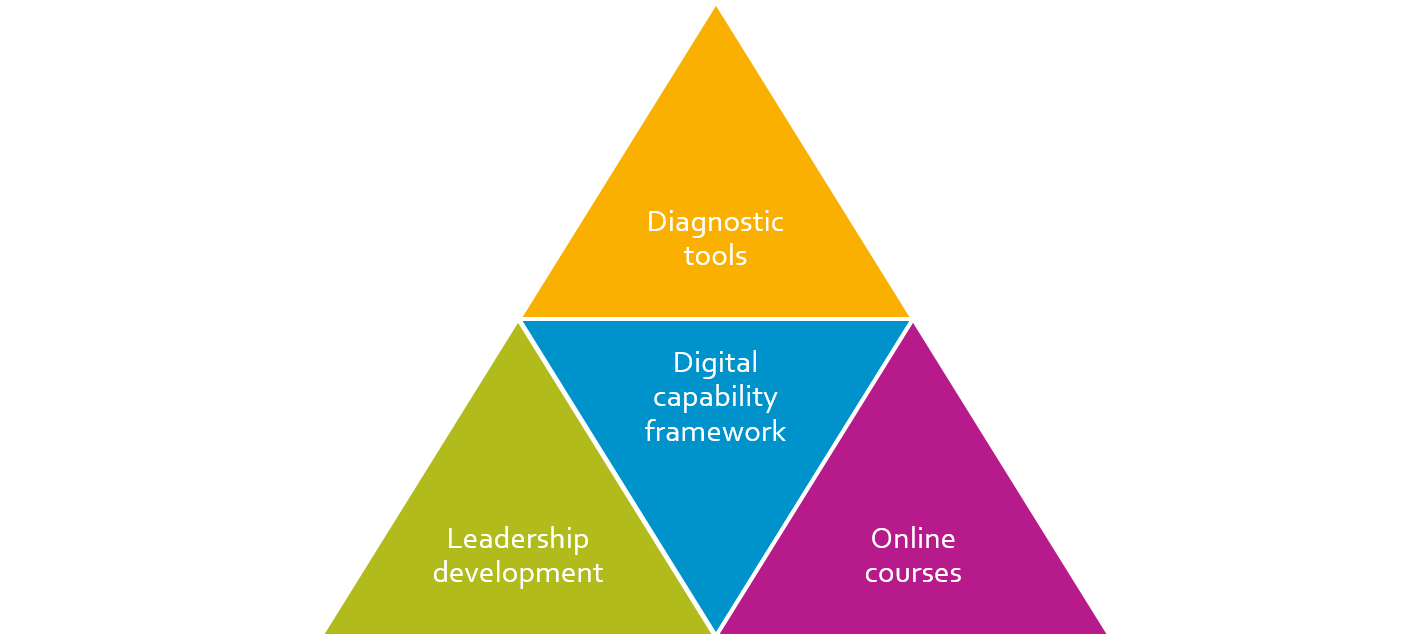UCISA’s Spotlight on digital capabilities conference provided two days tucked away in Media City, Salford, with excellent speakers and delegates, to talk about a topic very much top of my agenda at the moment. The event covered both staff and student capabilities, and the inter-relationships between the two, and attracted interested delegates from a wide range of roles in universities round the country.
It’s almost impossible to capture all the interesting points made by speakers and on twitter, so I’ll just highlight a few key things that I took away. Firstly, this digital capability thing isn’t a done deal for anybody: we’re all learning as we’re going, both about our own digital practice and about how to develop others. So although almost everyone seemed to have a mobile device of some sort handy and to be enthusiastically using it, the twitter reaction to Sue Beckingham’s opening presentation on managing your digital identity showed that even for people in the room, there were still plenty of barriers and brakes in this area, both attitudinal and to do with priorities and time. And as we found in the Changing the learning landscape visits, almost all universities struggle to embed digital practice beyond the early adopters. It was interesting in this respect to hear from Daniel Clark at BPP Business School, where they’ve taken a firm stance on baseline staff digital skills, and clearly described what these are in their context.
Two well-travelled Jisc outputs turned up all over the place in presentations: Helen Beetham and Rhona Sharpe’s 2008-2010 Digital literacy development pyramid:

and the seven elements of digital literacy, originally developed by Beetham, Littlejohn and McGill (2009) for the LLIDA project:

In many ways this should be no surprise to me: I’ve certainly used these two diagrams heavily in my own presentations and workshops on digital literacy over the last few years, finding, as others said, that they really help the penny to drop with the staff you’re working with. This evidence of their continued use also echoes the findings from our recent digital literacies framework survey, which found that 93% of the 56 universities that responded knew of, or had used, the seven elements model.
I threw in a new pyramid (or triangle, really) of my own: a representation of what we’re planning to build as a service to support universities and colleges in building the digital capability of their own staff.

The triangle in the middle – the digital capabilities framework – is the piece that Helen Beetham has been working on, and which she presented on at the conference – I’ll leave Helen to say more about that in her upcoming post. We had originally seen the framework as something which would underpin the other aspects of the digital capability offer, but have been surprised at the level of interest in the framework itself from universities who are seeking to create or use digital capabilities, skills or behavioural frameworks. Each of the three points of the outer triangle could provide a way into the service for an individual or university/college – perhaps approaching through using diagnostic tools, or starting via engagement with the leadership development, or first through online materials or engagement with the course. I told some user stories to suggest possible paths through the service we’re building; we’ll be testing some of these stories with users over the summer, and then piloting an alpha version of the service in the autumn term. If you’re interested in being involved, please get in touch with me at sarah.davies@jisc.ac.uk.
Dave White reviewed what we’ve learned from the Jisc Digital student project about student expectations and experiences of the digital environment, and asked us to consider which technologies were viewed by students as entitlements, and which as enhancements – and whether these were important within the overall student experience, and/or the learning experience.
There were some great presentations on students as change agents in driving both student and staff digital literacies. Due to the time of year, only one of the students involved could make it – the extremely impressive Rebecca Nice from Winchester, who also contributed to a very interesting panel discussion at the end of the first day. Jisc’s student change agent network is gathering and disseminating case studies and models of this kind of student partnership work in the digital area.
Niall Sclater presented the work that Jisc is doing on learning analytics, and launched the excellent 4-page Learning analytics code of practice. With my data capability hat on, I raised some questions about whether students and staff have the requisite data literacies to really make the most of analytics, and whether this was being addressed anywhere. Mike Day’s summary of his work at Nottingham Trent demonstrated how by taking a simple, agile, user-driven approach to implementation had laid many of these concerns to rest, as piloting their engagement monitoring solution with students and staff had enabled them to focus on the user needs and the benefits to students, not on the technology.
I couldn’t make the afternoon sessions on day 2, but will certainly be looking out for the recordings on the UCISA event page, and keeping the discussion going on Twitter.
